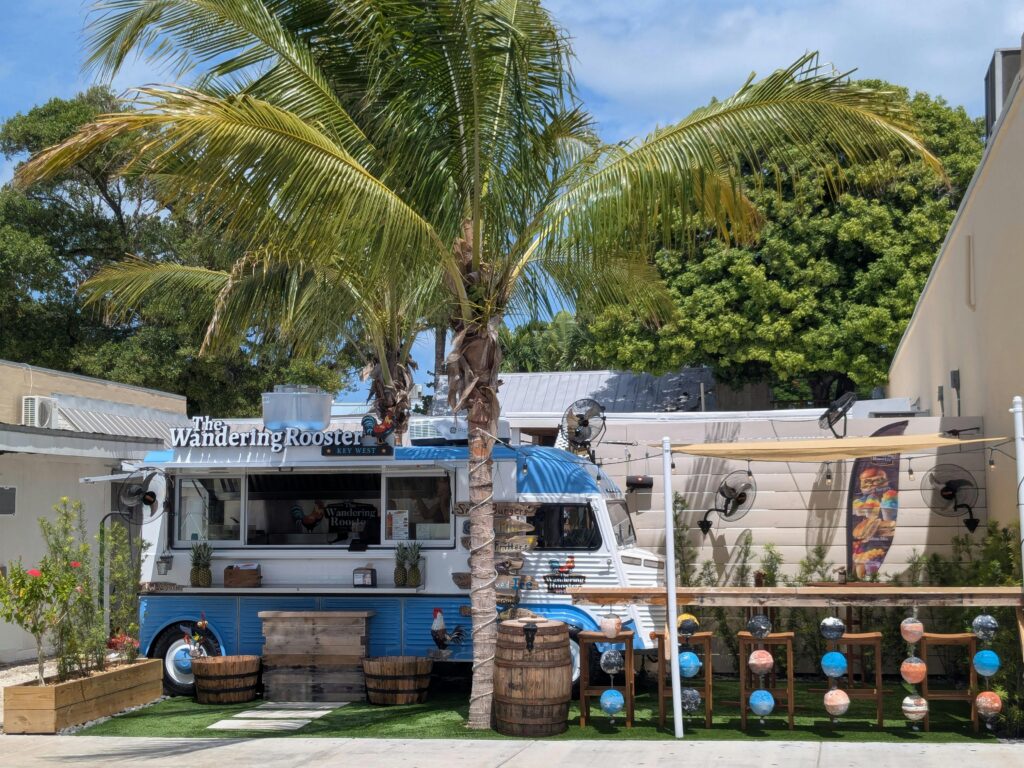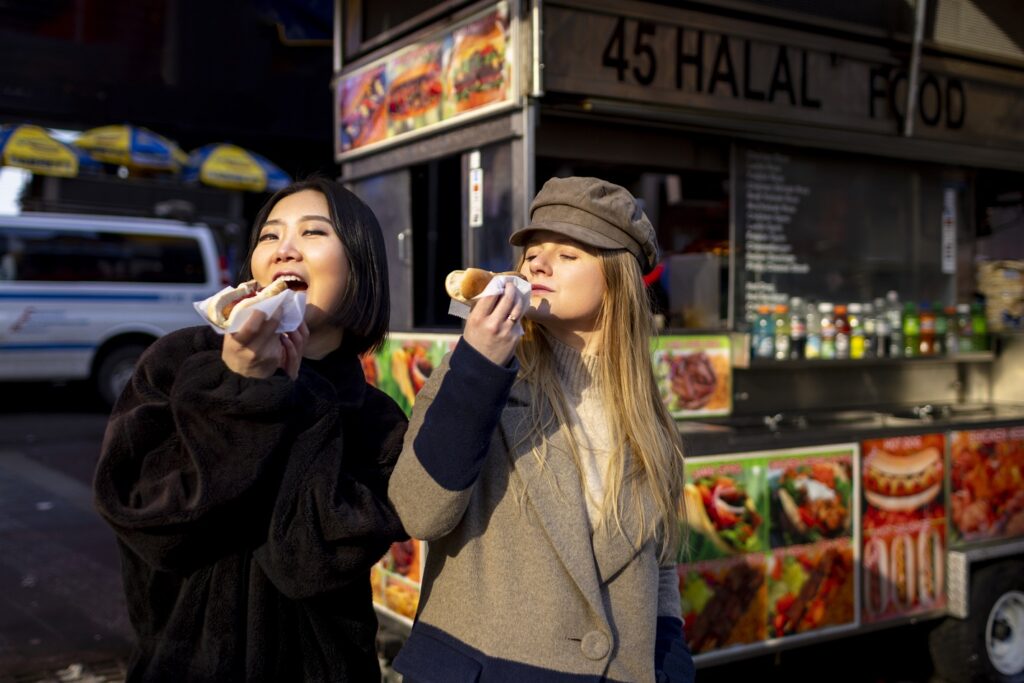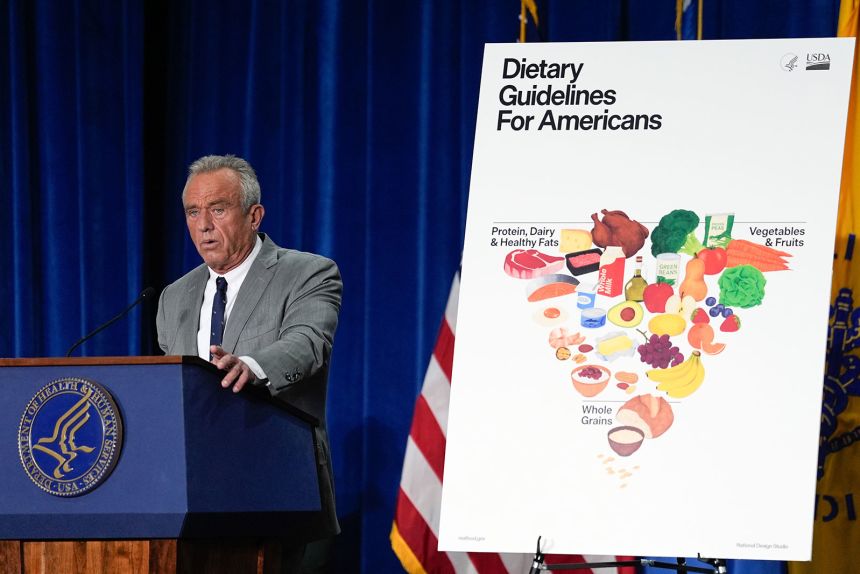Florida’s restaurant landscape is evolving rapidly, with more entrepreneurs turning to temporary dining concepts such as pop-up restaurants, food trucks, seasonal eateries, and special event catering. These models allow owners to test new markets, showcase creativity, and connect with customers in innovative ways without the heavy investment of a permanent location. However, while the flexibility and excitement of these ventures are undeniable, they also come with unique and often overlooked risks. Unlike traditional brick-and-mortar restaurants, mobile or short-term operations face heightened exposure to issues such as weather disruptions, equipment breakdowns, regulatory compliance challenges, and event cancellations.
Because these businesses often operate on tight margins and depend heavily on specific events or peak seasons for revenue, even a short interruption can lead to significant financial losses. For example, a food truck owner who relies on weekend festivals may face weeks of lost income if a storm damages their vehicle or if the event is canceled unexpectedly. This is where having the right protection becomes critical. Securing comprehensive coverage, including restaurant business interruption insurance Florida, ensures that operators can recover lost income, cover ongoing expenses, and remain compliant with state requirements while keeping their business dreams alive. For many, this type of insurance is the difference between bouncing back quickly after an unforeseen disruption and closing their doors permanently.

Understanding Temporary Dining Concepts in Florida
Temporary dining concepts refer to food service operations that provide meals to the public on a non-permanent or time-limited basis. Unlike traditional restaurants that operate year-round from a fixed location, these businesses thrive on flexibility and adaptability, often adjusting to seasonal demand, special events, or emerging market trends.
Common Examples of Temporary Dining Concepts
Some of the most recognizable forms of temporary dining in Florida include:
- Pop-up restaurants hosted in leased, shared, or unconventional spaces, often used by chefs to test menus or build brand awareness.
- Food trucks and mobile kitchens that travel between neighborhoods, festivals, or business districts to capture diverse customer bases.
- Seasonal operations, such as beachside shacks, seafood stands, or farmers’ market booths that depend on peak tourist seasons for profitability.
- Event-based catering services tailored to festivals, weddings, private parties, and corporate gatherings, where revenue depends heavily on specific dates.
Unique Risks and Exposures for Operators
While this operational model allows for creativity and lower overhead costs, it also introduces unique exposures that traditional brick-and-mortar restaurants may not face as frequently. These include:
- Fluctuating staffing levels, where temporary or seasonal employees may have less training and higher turnover, increasing the potential for liability claims.
- Constant relocation of equipment and inventory, which heightens the risk of theft, damage, or accidents during transport.
- Weather-related disruptions, particularly in Florida, where hurricanes, tropical storms, and heavy rainfall can suddenly cancel events or halt operations.
- Regulatory and permitting challenges, as compliance requirements often vary by county, city, or event venue.
Without adequate insurance, these challenges can quickly translate into significant financial losses. For example, a food truck operator relying on weekend festivals could lose weeks of revenue if their vehicle is damaged in transit, or a beachside shack might face closure during hurricane season with no way to cover ongoing expenses.
The Role of Restaurant Business Interruption Insurance in Florida
To safeguard against these risks, temporary dining operators should consider policies tailored to their specific business model. One of the most critical protections is restaurant business interruption insurance Florida, which covers lost income and ongoing expenses when operations are unexpectedly halted due to covered events. This type of insurance can make the difference between temporary setbacks and permanent closure, providing the financial cushion operators need to recover and continue serving customers.
By combining restaurant business interruption insurance with other essential coverages such as general liability, commercial auto, and property protection, Florida’s temporary dining businesses can remain resilient, even when faced with unpredictable disruptions.

Key Risks for Temporary Dining Operators
Temporary dining operations in Florida encounter a unique combination of risks that differ significantly from those faced by permanent restaurants. Because these businesses rely heavily on mobility, short-term venues, and seasonal opportunities, their vulnerabilities can escalate quickly if not properly insured. Recognizing these risks is the first step toward building an effective coverage strategy that keeps the business sustainable even in unpredictable circumstances.
Liability Exposure
Temporary restaurants are especially vulnerable to liability claims due to the nature of their setups and operating environments. Unlike established restaurants with consistent layouts and staff, pop-ups and food trucks often adapt to new venues with little time for risk management. Common exposures include:
- Slip-and-fall incidents: Outdoor seating, temporary flooring, or high foot traffic in unfamiliar venues increase the likelihood of accidents.
- Foodborne illnesses: Temporary kitchens may face sanitation challenges, especially when working with limited refrigeration or cooking space, raising the potential for costly food liability claims.
- Alcohol service risks: Many temporary dining concepts incorporate alcohol sales, which exposes operators to liquor liability claims if an intoxicated patron causes harm.
Comprehensive general liability insurance is essential to shield operators from these scenarios. It covers legal fees, settlements, and medical expenses, ensuring that a single accident does not derail the entire business.
Workers’ Compensation Concerns
Staffing for temporary dining operations often involves a mix of part-time, seasonal, or contract workers. While this provides flexibility, it complicates compliance with Florida’s workers’ compensation laws. The risks are heightened in settings such as mobile kitchens, outdoor setups, or fast-paced catering events, where injuries are more likely to occur.
Without proper coverage, even a minor injury could result in significant costs for the operator. Workers’ compensation insurance ensures that employees receive necessary medical care while protecting business owners from financial liability. Policies must be tailored to reflect the short-term contracts and fluctuating hours that characterize this sector.
Property and Equipment Protection
Temporary dining operators depend on specialized equipment such as mobile food trucks, portable cooking stations, tents, and high-value inventory. These assets are highly exposed to theft, fire, storm damage, or equipment malfunction. Unlike fixed-property restaurants, mobile and pop-up ventures often need inland marine coverage, a specialized policy designed to protect equipment that travels from location to location.
Securing commercial property insurance, adapted to temporary or mobile operations, helps operators safeguard their investments and avoid devastating financial setbacks when equipment or inventory is damaged or lost.
Business Interruption Risk
Perhaps the most underestimated risk for temporary dining operators is business interruption. Many assume that because their operations are short-term or mobile, they are less vulnerable to disruptions. In reality, the opposite is true: revenue often depends on very specific events, peak seasons, or short timeframes. Losing even a few days of operations can create a severe financial impact.
Unforeseen events include:
- Severe weather or hurricanes, a constant threat in Florida that can shut down operations for weeks.
- Equipment breakdowns, such as a food truck engine failure or generator malfunction, which can halt service entirely.
- Vendor delays or supply chain disruptions, particularly critical when sourcing specialty ingredients or handling event-based catering.
In these situations, securing restaurant business interruption insurance Florida is indispensable. This coverage provides a financial safety net by replacing lost income, helping operators cover ongoing expenses, and ensuring that a temporary closure does not become permanent. For mobile and seasonal restaurants, it is one of the most important policies to guarantee long-term survival.

Insurance Coverage Solutions for Temporary Dining Concepts
Insurance solutions designed for temporary dining concepts in Florida must be both flexible and comprehensive, as these operations often combine mobility, seasonal schedules, and strict regulatory requirements. The right coverage ensures operators remain protected from unexpected setbacks while meeting state and venue compliance standards. Below are the key insurance policies every pop-up, food truck, or event-based operator should evaluate.
General Liability Insurance
General liability insurance is the cornerstone of protection for any temporary dining operation. Its key benefits include:
- Coverage for bodily injury and property damage claims that may arise in unpredictable event settings.
- Payment of legal fees, settlements, and medical expenses, which could otherwise overwhelm a small operation.
- Protection against third-party property damage, such as accidental damage to a leased venue or shared event space.
For temporary operators, these policies must be tailored to consider specific exposures, such as outdoor event hazards, food service in mobile units, or unfamiliar environments that increase risk.
Liquor Liability Coverage
Alcohol service creates a distinct layer of risk. A single incident involving an intoxicated patron can lead to severe financial consequences for operators. Liquor liability coverage protects temporary dining businesses if patrons who consume alcohol cause injury, accidents, or property damage. In Florida, liquor laws are strict, and compliance is mandatory, making this coverage a vital safeguard for food trucks, pop-ups, and event caterers serving alcoholic beverages.
Workers’ Compensation Insurance
Florida law requires businesses with four or more employees to carry workers’ compensation insurance, but temporary dining concepts face added complexity. With staffing that often changes week to week, or even event to event, coverage must be structured to reflect short-term contracts and fluctuating work hours.
A well-structured policy ensures:
- Coverage for temporary, seasonal, or part-time staff, who are common in mobile or event-based dining.
- Protection for off-site and mobile operations, where working conditions may be less controlled.
- Financial support for medical care, lost wages, and rehabilitation costs when workplace injuries occur.
Commercial Property Insurance
Temporary dining operators rely heavily on specialized equipment and inventory, both of which are vulnerable to damage, theft, or breakdown. Commercial property insurance helps protect these valuable assets, including:
- Mobile kitchens, food trucks, and trailers
- Portable equipment, tents, furniture, and staging
- Perishable food and beverage inventory
Policies should be evaluated carefully to confirm that they include:
- Inland marine coverage, which protects property while in transit from one venue to another.
- Equipment breakdown coverage, safeguarding operators against costly repairs or replacements.
- Protection for leased or borrowed equipment, common in seasonal and event-based operations.
Business Interruption Insurance
Even operators with temporary or mobile setups face the very real risk of business interruption. Weather events, equipment failures, or venue cancellations can halt operations with little warning, cutting into already limited profit windows. Restaurant business interruption insurance Florida provides a critical financial safety net, offering:
- Reimbursement for lost income during closures caused by covered events.
- Coverage for additional operating expenses required to continue service, such as renting replacement equipment.
- Financial protection against event cancellations or venue unavailability, which can wipe out anticipated revenue streams.
When integrated with general liability, liquor liability, workers’ compensation, and commercial property policies, business interruption insurance completes a comprehensive protection strategy. For Florida’s pop-ups, food trucks, and event-based restaurants, this integration is essential to long-term success and resilience.

Regulatory Compliance Considerations
Temporary dining concepts in Florida must operate within a complex regulatory environment. While flexibility is the hallmark of pop-ups, food trucks, seasonal eateries, and event-based catering services, this flexibility does not exempt operators from strict compliance requirements. In fact, navigating state and local regulations is one of the most critical factors in ensuring both operational success and long-term viability.
Health and Safety Codes
Local health and safety regulations are non-negotiable for temporary dining businesses. These rules govern everything from food storage and preparation to sanitation practices in mobile or temporary kitchens. Pop-up operators and food trucks must often pass surprise inspections, and non-compliance can lead to fines, closures, or reputational damage. Insurance policies that address potential liability from health-related claims—such as foodborne illnesses, help operators demonstrate due diligence and responsible management.
Alcohol Service Laws and Permits
For operations that include alcohol sales, compliance becomes even more complex. Florida enforces strict alcohol service laws, requiring proper licensing and adherence to regulations designed to reduce over-service and underage consumption. Failing to meet these requirements can result in license suspension or civil liability claims. Having liquor liability insurance is not just a smart risk management step, it is often expected by event organizers and regulators before granting service permits.
Occupational Safety for Staff
Temporary dining operations rely heavily on seasonal, part-time, or event-based workers. Florida’s occupational safety requirements mandate that employers provide safe working conditions, even in temporary or mobile setups. From handling hot equipment in outdoor kitchens to lifting heavy supplies during setup, risks are high. Compliance with these standards, supported by workers’ compensation insurance, not only protects employees but also shields operators from costly legal disputes.
Insurance as a Compliance Tool
One often overlooked aspect of regulatory compliance is the role of insurance. Many municipalities, event venues, and permitting authorities in Florida require operators to carry proof of insurance before granting approval to operate. Policies such as general liability, liquor liability, and workers’ compensation are commonly mandated.
Just as importantly, securing restaurant business interruption insurance Florida aligns with best practices in risk management. It ensures operators can maintain financial stability in the event of closures due to weather, equipment failure, or venue unavailability, all of which are frequent concerns in Florida’s temporary dining sector. Beyond compliance, this coverage signals to regulators, customers, and partners that the operator is committed to running a responsible, sustainable, and resilient business.
Customizing Coverage for Temporary Operators
When it comes to insuring temporary dining concepts in Florida, a one-size-fits-all policy rarely provides adequate protection. The unique nature of pop-ups, food trucks, seasonal eateries, and event-based catering requires customized insurance solutions that reflect their operational realities. Effective risk management for these businesses involves identifying specific exposures, tailoring policies to meet those needs, and ensuring compliance with state and local regulations.
Risk Assessment and Planning
The foundation of a successful insurance program begins with a professional risk assessment. For temporary dining operators, risks vary widely depending on factors such as:
- Location: Outdoor venues, festivals, or shared spaces may increase liability exposure and equipment risks.
- Staffing: Seasonal and part-time workers present higher turnover, varying safety training levels, and complex workers’ compensation needs.
- Menu and operations: Specialized cuisines, alcohol service, or perishable ingredients may require additional endorsements or higher coverage limits.
By identifying these exposures in advance, operators can customize their policies with the right endorsements—such as equipment breakdown, inland marine coverage, or liquor liability—ensuring that protection is both adequate and cost-effective.
Policy Bundling for Efficiency
Temporary operators often juggle multiple policies, which can create administrative headaches and coverage gaps. Policy bundling provides an efficient alternative, allowing operators to combine essential protections like:
- General liability insurance for accidents and third-party claims
- Workers’ compensation tailored to temporary staff patterns
- Commercial property insurance for equipment and inventory
- Restaurant business interruption insurance Florida for income protection during closures
Bundling these policies not only simplifies management but can also reduce overall premiums. For many small or seasonal operators, this efficiency makes comprehensive protection more affordable and accessible.
Seasonal or Short-Term Coverage Options
Not every operator requires year-round insurance. Seasonal or short-term policies are particularly valuable for businesses that function only during specific times of the year—such as beachside eateries in summer or food vendors tied to holiday festivals. These policies can be customized to:
- Align coverage with operational calendars
- Provide protection only during special events or festival seasons
- Reduce costs by avoiding unnecessary year-round premiums
This flexibility ensures that operators remain covered during their busiest, most profitable periods, without overpaying for coverage when they are not in business.
Building Resilience Through Customization
Ultimately, tailoring coverage allows temporary dining operators to build resilience in an unpredictable industry. By combining the right mix of liability, workers’ comp, property, and especially restaurant business interruption insurance Florida, operators create a safety net that not only protects against immediate risks but also secures their long-term viability.

Real-World Examples of Coverage Challenges
Temporary dining operators in Florida face very real, and often unexpected, challenges that highlight why comprehensive and customized insurance is critical. These scenarios demonstrate how different forms of coverage work in practice, protecting operators from financial loss and ensuring business continuity.
Event Liability at a Pop-Up Restaurant
During a crowded food festival in Miami, a pop-up restaurant faced multiple slip-and-fall incidents caused by rainwater accumulating on temporary flooring. Several attendees filed claims for medical expenses and damages. Without insurance, the operator would have been responsible for thousands of dollars in legal fees and potential settlements. Fortunately, general liability insurance covered these costs, allowing the operator to continue participating in future events without financial setbacks.
Mobile Equipment Theft from a Food Truck
A food truck operator traveling between Orlando and Tampa lost valuable kitchen equipment after a theft occurred while the truck was parked overnight. For mobile businesses, equipment represents a significant portion of total investment. In this case, the operator’s inland marine coverage reimbursed the replacement costs, ensuring operations could resume quickly. Without this protection, the financial loss could have forced the business to shut down temporarily, or permanently.
Seasonal Staff Injury at a Beachside Eatery
At a seasonal beachside shack in Destin, a newly hired employee sustained serious burns while preparing fried food during a busy weekend. Workers’ compensation insurance not only covered the employee’s medical treatment and lost wages but also protected the operator from penalties under Florida’s strict employment laws. This case highlights the importance of structuring workers’ comp coverage to reflect the seasonal and high-turnover staffing patterns common in temporary dining operations.
Business Interruption After a Weather Event
Another food truck operator scheduled to participate in a series of summer festivals in Central Florida faced a severe challenge when a tropical storm forced multiple event cancellations. With revenue tied directly to these events, the operator risked losing an entire season’s income. Fortunately, their restaurant business interruption insurance Florida provided reimbursement for lost income and ongoing expenses. This allowed the operator to cover payroll, loan obligations, and other fixed costs until operations resumed.
Lessons from Real-World Cases
Each of these examples underscores how tailored insurance coverage acts as a financial safety net. From liability incidents and theft to staffing injuries and weather disruptions, comprehensive policies, including general liability, workers’ compensation, inland marine, and business interruption, enable operators to recover quickly and keep their businesses viable. Without these protections, temporary dining ventures in Florida could easily suffer irreparable financial harm.
Choosing the Right Insurance Partner
Selecting an experienced insurance provider is critical for temporary dining operators. Key considerations include:
- Expertise in Florida’s restaurant industry
- Ability to structure customized policies for mobile and temporary operations
- Access to multiple coverage options and endorsements
- Guidance on compliance with state and local regulations
Operators benefit from consulting with insurance professionals who understand both the culinary and legal complexities of temporary dining concepts.
Resources for Temporary Dining Operators
For further guidance and authoritative information, operators can reference:
- U.S. Small Business Administration (SBA): Guidance on business planning, regulatory compliance, and insurance considerations.
- National Restaurant Association (NRA): Industry standards, risk management, and food safety best practices.
- Insurance Information Institute (III): Comprehensive insights on business insurance coverage, policies, and risk mitigation strategies.
Encouraging Proactive Risk Management
Temporary dining operators in Florida face a unique set of operational challenges. Pop-ups, food trucks, seasonal eateries, and event-based catering services all require careful planning to mitigate risks that could disrupt business or threaten financial stability. Effective risk management combines awareness of exposures, tailored insurance solutions, and guidance from experienced insurance partners.
Minimizing Financial Losses
By identifying potential hazards in advance, such as slip-and-fall incidents, equipment theft, or severe weather, operators can significantly reduce the likelihood of devastating financial losses. Comprehensive coverage, including general liability, workers’ compensation, commercial property insurance, and especially restaurant business interruption insurance Florida, ensures operators can recover quickly when unforeseen events occur.
Ensuring Regulatory Compliance
Florida’s temporary dining landscape is governed by complex health, safety, and liquor laws. Proactively addressing compliance through appropriate insurance demonstrates responsible management to regulators, venue operators, and customers. Policies that align with state requirements provide operators with confidence that they are protected from penalties and legal disputes.
Protecting Seasonal and Temporary Staff
Temporary and seasonal employees represent a vital part of these businesses, yet they also introduce unique risks. Proper workers’ compensation coverage safeguards both staff and operators, covering medical expenses, lost wages, and rehabilitation costs if injuries occur. This protection reinforces a safe work environment and ensures adherence to Florida labor laws.
Maintaining Continuity of Operations
Business interruptions, whether from hurricanes, equipment breakdowns, or canceled events, can jeopardize short-term revenue and long-term viability. Securing restaurant business interruption insurance Florida allows operators to maintain cash flow, cover ongoing expenses, and continue serving customers without permanent setbacks.

Partnering with Commercialize Insurance Services (CIS) for Comprehensive Solutions
Temporary dining operators in Florida benefit from working with a knowledgeable insurance partner like Commercialize Insurance Services (CIS). With expertise in restaurant risk management, Commercialize Insurance Services (CIS) helps operators:
- Assess operational exposures specific to mobile and seasonal concepts
- Customize insurance policies with appropriate endorsements
- Navigate compliance requirements for health, safety, and alcohol service
- Bundle coverage efficiently, including restaurant business interruption insurance Florida, to protect income and assets
By partnering with Commercialize Insurance Services (CIS), operators gain not only insurance coverage but also strategic guidance, ensuring their temporary dining businesses remain sustainable, profitable, and resilient in Florida’s dynamic market.
To learn more, visit https://usa-cis.com/ or contact one of their knowledgeable agents today





